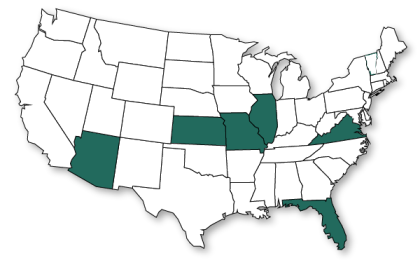Your maintenance associate has a great idea. Instead of climbing up and down ladders to inspect the roof and gutters after a storm, they’ll use a drone to take high-definition video of the peaks, valleys, hips and flashing of the buildings in your community association.
On a bright day, the sound of the drone buzzes like a giant, furious wasp. It takes off and your team is on your way to getting all the roofs inspected in record time. Toward the end of the afternoon, the last building is being inspected – the clubhouse. All is well until an unexpected breeze throws the drone off-course and it crashes through the massive window that faces the lake.
Will this accident be covered by your insurance?
In most situations the answer is “no.” For insurance purposes, an accident with a drone is no different than an accident with an aircraft. Unless you have coverage specific for aviation, the damage would not be insured.
Drone Liabilities – As drones are being employed for inspections, monitoring and other tasks for community associations, boards will want to take into account the possible problems that can come into play using flying drones. The obvious are accidents with a drone, or accidents caused by a drone, but the potential for liability does not end there. Drones likely to be used by a community association will be recording images. Combining images, video and data that may be personally identifiable can raise privacy issues as well as privacy liability. Even as aviation-related damage and injuries may not be covered under common policies, any cyber-security or privacy liability coverage will not extend to drone use. Should you employ drones, checking to make sure your policy includes coverage for cyber security and privacy is a good idea.
If a homeowner has an accident with their drone, the community generally will not be liable unless the community is somehow negligent. A possible step to avoid the charge of negligence could be for communities to establish “no drone zones.” That said, the Federal Aviation Administration regards regulation of the skies their exclusive purview, so a community association may not be able to enforce such a restriction.
Like any new technology, there are risks that offset the benefits. Community association leaders should speak with their insurance and legal representatives to develop a drone use policy and secure coverage for drone use.
If you have questions about insurance and drones, please call your independent insurance agent here at the O’Connor Insurance Agency. Our number is 314-434-0038.

 The icicles that hang from the edge of your roof may be pretty, but they could also be an indication of a serious problem with the roof of your building. Ice dams form at or near the edge of roof decks when melting snow and ice collect and refreeze. This in turn can prevent melt water from flowing into gutters and away from the building. An ice dam can instead direct water up under the roof covering. The insidious flow of water may not be visible until the moisture has lead to rot, mold or worse and can cause a lot of damage.
The icicles that hang from the edge of your roof may be pretty, but they could also be an indication of a serious problem with the roof of your building. Ice dams form at or near the edge of roof decks when melting snow and ice collect and refreeze. This in turn can prevent melt water from flowing into gutters and away from the building. An ice dam can instead direct water up under the roof covering. The insidious flow of water may not be visible until the moisture has lead to rot, mold or worse and can cause a lot of damage.







